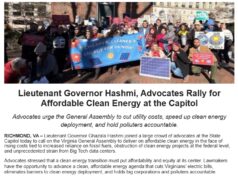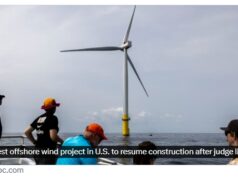by Sharon Shutler, co-chair of Climate & Clean Energy Working Group, Virginia Grassroots Coalition
In 2020, the General Assembly committed Virginia to a zero-carbon future. If we are serious about getting there, we must significantly improve energy efficiency in our homes. This would not only reduce our carbon footprint but would lower utility bills.
How do we do this? Virginia must revamp its code governing new housing construction to meet or exceed the national energy efficiency standard– known as the International Energy Conservation Code (IECC). The current IECC standards were set in 2018 and will be updated for 2021. However, Virginia’s energy efficiency requirements for new construction are stuck at or near the old 2012 IECC.
Virginia is updating its code now. The Board of Housing and Community Development (BHCD) will meet on October 19 to consider changes to Virginia’s building code, a process it repeats every three years. Unfortunately, the BHCD’s proposed amendments to the code fail to even meet the IECC 2018 standards.
The BHCD should adopt, at least, the full 2018 IECC. This would require more insulation in the attics and walls of new homes, which is much cheaper than retrofitting homes after construction. Adoption of the 2018 IECC would also save energy by reducing air leakage. These are simple, obvious, money-saving amendments and should be the minimum to which buyers and renters of homes are entitled. The code updates, which will not be implemented until late 2021, should also include some easy to comply with elements of the 2021 IECC.
Virginia law is clear – the building code should meet the minimum level set by national standards including the IECC. But in practice, pushback from the powerful homebuilder industry results in a code that falls short. Homebuilders want to build the cheapest homes possible, even if high utility bills end up making them expensive homes to own or rent.
The administrative process of considering and adopting a new code is complex and opaque, favoring insiders and making it challenging for consumer advocates to have a say. This year, however, an alliance of environmental groups including the Virginia Grassroots Coalition, the Sierra Club, and the Faith Alliance for Climate Solutions are challenging the status quo. We are advocating to bring the housing code up to the 2018 IECC, and to include some measures which will be in the 2021 IECC provisions. These additional measures would, for example, make homes solar and electric vehicle-ready – a simple matter of putting conduits for wiring in place during construction. They add little upfront cost but can save thousands of dollars in future energy costs and retrofit costs that could requiring ripping out walls post-construction. The measures would also give builders choice – they can select energy efficiency options that work best for them from a predetermined list.
Those who live in poorly insulated homes are familiar with the tradeoff between keeping homes comfortable and keeping utility bills affordable. High costs also undercut residents’ ability to make rent and mortgage payments. We have a right to expect that our government is doing all it can to lessen that tradeoff. Unfortunately, while Virginia and utilities are spending millions to improve energy efficiency in existing residences, the current code falls seriously short for new construction. With buildings expected to last 70 years or more, all Virginians are harmed by construction of dwellings that are not energy efficient or ready for clean energy options.
Governor Northam and the General Assembly have committed Virginia to a zero-carbon future. BHCD should support that future and adopt these energy efficiency amendments to bring Virginia up to the minimum 2018 national standards, lower carbon emissions and save money for consumers.










